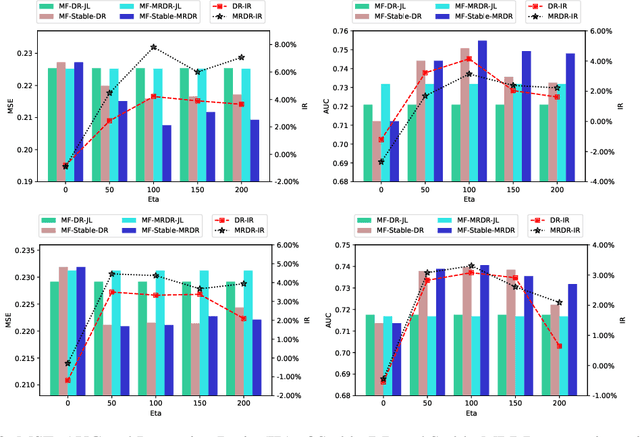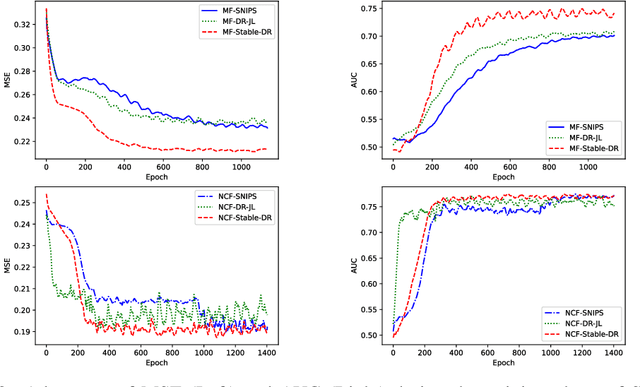Stabilized Doubly Robust Learning for Recommendation on Data Missing Not at Random
Paper and Code
May 17, 2022



In recommender systems, users always choose the favorite items to rate, which leads to data missing not at random and poses a great challenge for unbiased evaluation and learning of prediction models. Currently, the doubly robust (DR) method and its variants have been widely studied and demonstrate superior performance. However, in this paper, we show that DR methods are unstable and have unbounded bias, variance, and generalization bounds to extremely small propensities. Moreover, the fact that DR relies more on extrapolation will lead to suboptimal performance. To address the above limitations while retaining double robustness, we propose a stabilized doubly robust (SDR) estimator with a weaker reliance on extrapolation. Theoretical analysis shows that SDR has bounded bias, variance, and generalization error bound simultaneously under inaccurate imputed errors and arbitrarily small propensities. In addition, we propose a novel learning approach for SDR that updates the imputation, propensity, and prediction models cyclically, achieving more stable and accurate predictions. Extensive experiments show that our approaches significantly outperform the existing methods.
 Add to Chrome
Add to Chrome Add to Firefox
Add to Firefox Add to Edge
Add to Edge